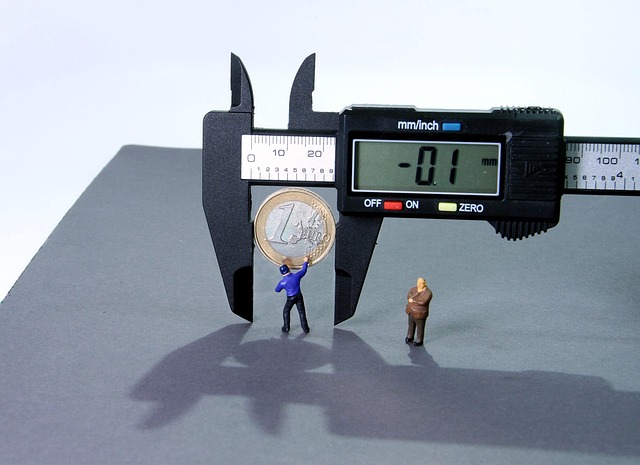When seeking equipment financing, businesses have numerous loan options with varying interest rates, flexibility, and repayment terms. Key considerations for optimal lender selection include understanding financial criteria like cash flow, creditworthiness, and market conditions. Negotiating interest rates, offering collateral, and maintaining a strong credit score enhance loan flexibility. Agreeing on repayment terms ensures effective cash flow management. Choosing the right equipment financier unlocks favorable loan options, customized to specific needs, fostering long-term partnerships based on trust and mutual understanding.
Looking to finance your business equipment but want a tailored solution? Loan customization for equipment financing offers unparalleled flexibility. This comprehensive guide explores various aspects of loan options, from understanding interest rates and negotiating favorable terms to strategic lender selection. We delve into how to customize financial criteria and repayment terms to fit your unique needs, ensuring access to the equipment you need without compromising cash flow.
- Understanding Loan Options for Equipment Financing
- Interest Rates: Factors and Negotiation Strategies
- Lender Selection: Criteria for Choosing the Right Financier
- Customization of Financial Criteria and Repayment Terms for Flexibility
Understanding Loan Options for Equipment Financing

When considering equipment financing, businesses have a variety of loan options available to them. Understanding these choices is crucial in selecting the best fit for their financial criteria. Key factors in lender selection involve evaluating interest rates, loan flexibility, and repayment terms offered by different institutions. Each option caters to specific needs, whether it’s a short-term need for immediate equipment acquisition or a longer-term strategy for sustained growth.
Loan flexibility plays a significant role in the decision-making process. Businesses should consider the terms that align with their cash flow patterns and financial goals. Some lenders offer more adaptable repayment structures, while others might have stricter conditions. Assessing these aspects ensures that the chosen financing plan supports operational demands and promotes sustainable financial management.
Interest Rates: Factors and Negotiation Strategies

When exploring loan customization for equipment financing, understanding and negotiating interest rates is a crucial step. These rates are a key component in determining the overall cost of borrowing, significantly impacting the financial health of your business. Several factors influence interest rates, including the type of equipment financed, the borrower’s creditworthiness, market conditions, and the lender’s risk assessment. Lenders often consider financial criteria such as cash flow, debt-to-income ratios, and business history when setting rates.
Strategic negotiation can help secure more favorable terms. Borrowers with strong financial positions or specific loan requirements may leverage their advantages to negotiate lower interest rates. Offering collateral, maintaining a solid credit score, or exploring alternative lender selection can enhance loan flexibility. Additionally, understanding and agreeing on the repayment terms, including the length of the loan and frequency of payments, is essential for managing cash flow effectively while ensuring timely debt repayment.
Lender Selection: Criteria for Choosing the Right Financier

When it comes to equipment financing, lender selection is a crucial step in securing the best loan options for your business needs. Choosing the right financier involves considering several financial criteria. Firstly, assess the interest rates offered by different lenders. Lower interest rates can significantly impact the overall cost of your loan over time. Secondly, look into the loan flexibility and repayment terms. Some lenders provide customized options tailored to specific equipment types or industry standards, allowing for more manageable repayment schedules.
Additionally, evaluating the reputation and stability of potential lenders is essential. Researching their financial health and customer reviews can offer insights into their reliability and the level of service they provide. Opting for a lender with a strong track record ensures transparency and peace of mind throughout the financing process.
Customization of Financial Criteria and Repayment Terms for Flexibility

When it comes to equipment financing, one of the key benefits of loan customization is the ability to tailor financial criteria and repayment terms to meet specific business needs. This flexibility allows companies to access the necessary capital for acquiring new or upgraded machinery and technology, while ensuring that the loan aligns with their cash flow patterns and financial capabilities. Lender selection plays a crucial role here; choosing a financier who understands the unique aspects of equipment financing can lead to more favourable terms, including competitive interest rates.
Customized loan options allow businesses to structure repayments in a way that suits their operations. This could involve negotiating variable interest rates linked to market trends or industry benchmarks, extending repayment periods for larger purchases, or incorporating seasonal fluctuations in revenue when setting monthly instalments. Such adaptations not only enhance cash flow management but also demonstrate the lender’s willingness to work collaboratively with the borrower, fostering a long-term partnership based on trust and mutual understanding.
